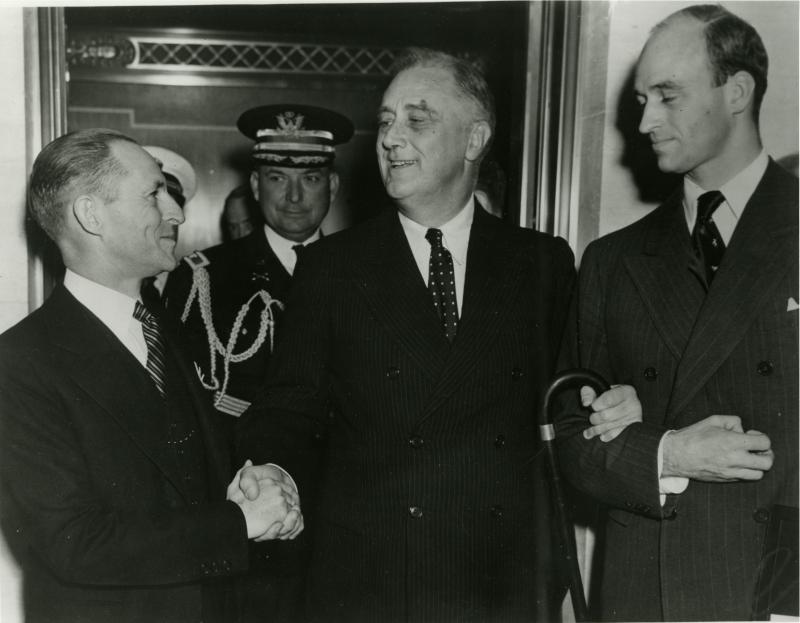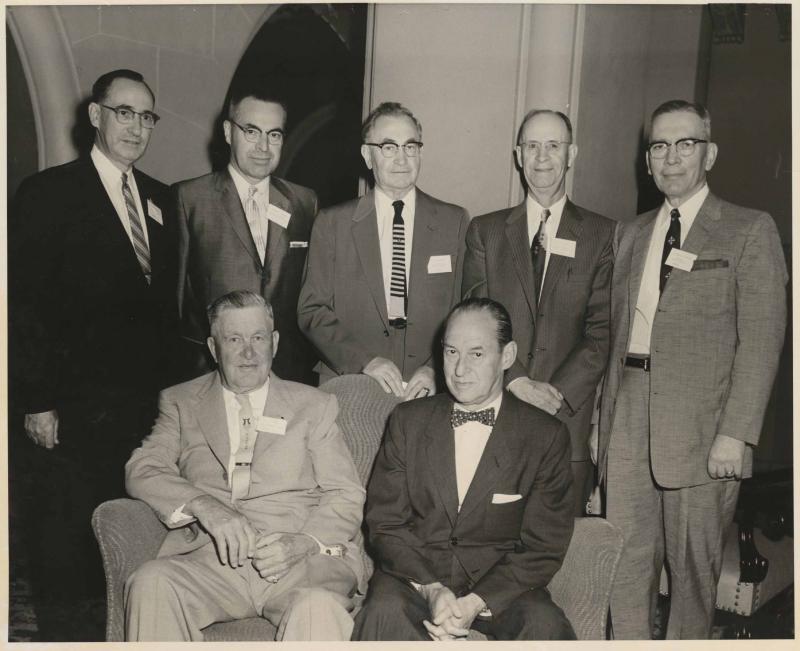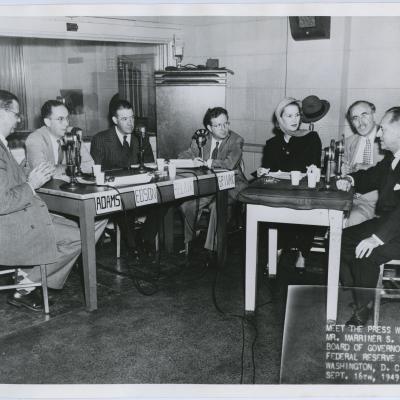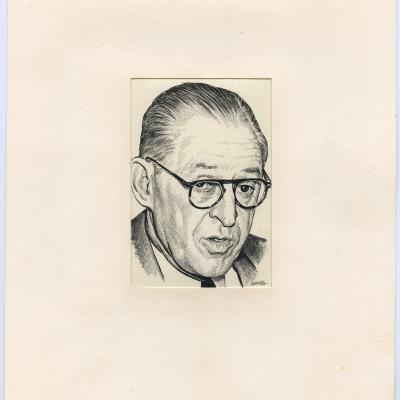The Washington Years
Eccles' ideas about the need for government intervention in the economy and deficit financing directly contradicted the testimony offered by others. However, because of his testimony and subsequent meetings with men close to President Franklin D. Roosevelt, he was asked to join the administration as an assistant to the Secretary of the Treasury Henry Morgenthau, Jr. He accepted and began his duties in February 1934. In November of that year he was nominated by Roosevelt to the Federal Reserve System; the Senate approved this appointment April 25th, 1935. In 1936 he was appointed as chairman of the board of governors of the newly restructured Federal Reserve System created by the Banking Act of 1935.
Eccles has been given credit as being the architect of the Federal Housing Act of 1934 and the Banking Act of 1935. He continued in Washington for seventeen years as head of the nation's banking system, and provided strong leadership during the turbulent years of the depression and World War II. He often disagreed with the secretaries of the Treasury and both presidents under whom he served. These disagreements are well documented; Eccles was not a man to conceal his feelings about monetary and fiscal policies. After his initial successes in the mid-thirties, he turned his attention to two other issues. The first was the unification of the country's banking system, and in this endeavor he was not successful. He based his acceptance of reappointment to the board of governors in 1944 on Roosevelt's implied endorsement of the Eccles Unification Plan. It was not until the mid-1970s that this was accomplished, however, under the Federal Reserve chairman Arthur Burns. The second issue involved a long-standing disagreement with the Treasury Department and both secretaries, Morgenthau and Snyder, about the best way to handle the inflationary pressures building as a result of World War II. Eccles was more successful with this issue, and saw most of his ideas realized by the Accord of 1951.
While Eccles was in Washington he was fortunate to have able colleagues in Utah to maintain his business interests. In particular, his brother George profitably managed the First Security Corporation. Marriner did not completely remove himself from his Utah interests, however. He assumed the position of chairman of the board of both Utah Construction and Amalgamated Sugar in the 1940s. The early 1950s marked several changes in Marriner Eccles' life. In 1948, because he disagreed with President Harry S. Truman's economic policies, Truman did not appoint him as chairman of the Federal Reserve Board. Eccles was, however, still a governor of the board, as these appointments are made for fourteen years. Because he was no longer chairman, he felt that he could speak more openly about his disagreements with the administration. As his Washington career was winding down, he began writing his autobiography and retained Sidney Hyman to assist him. The book, Beckoning Frontiers, was published in 1951, the same year he resigned from the Federal Reserve Board.
Following World War II, inflation became a problem as government spending continued while wage and price controls from wartime were removed. Eccles recognized that defense spending to counteract the Soviets was necessary, but expected that until there was a lasting peace the economic conditions would remain unstable. And his words on 8 April 1949 in a speech before the Commonwealth Club of California presaged the warning by President Eisenhower about the “military-industrial complex”:
All this admittedly is outside my field of monetary, banking and credit matters. Yet it is impossible to consider realistically either our short-run or long-run economic outlook without recognizing that the shadow of the Soviets looms behind every major issue. At the moment huge expenditures for military purposes and foreign aid also serve as economic props for which we have not yet developed substitutes. They waste rather than add to our national wealth and there is always the danger that we will cling to them indefinitely, not only in the hope that this is the way to peace, but also because they sustain economic activity at home.”




